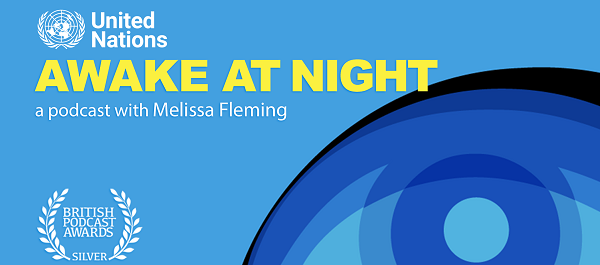Quantum mechanics has impressively completed our view of the world and made the atomistic cosmos accessible to us.

A Decade of Prevention: Renewing Commitment to Human Rights-Based, Nationally Led Efforts against Violent Extremism
Eihab Omaish
Victims of terrorism must remain at the heart of prevention efforts. Their voices and experiences highlight both the profound human costs of terrorism and the obligations of States to protect those within their jurisdiction.

Peaceful Coexistence Is a Moral Choice – and a Shared Responsibility
On this first International Day of Peaceful Coexistence – 28 January 2026 – the global community is called not merely to reflect on a noble aspiration but to reaffirm its commitment to the demanding, transformative work of building peace through mutual understanding at every level of society.

Clean Energy Is the World’s Most Secure Path Forward
To meet global climate goals and deliver energy for all, clean energy investment must more than triple by 2030, and much of it must go to emerging and developing economies.
Most Popular

We Must Remain Committed to a World Free of Chemical Weapons
Despite the near-universal commitment to the Chemical Weapons Convention and the progress made on the destruction of declared stockpiles, the world is still not free from the threat of chemical weapons.

The Future of Responsible Storytelling in the Age of Creative AI
Storytelling can restore dignity, or quietly take it away. As the world enters an era driven by generative artificial intelligence (AI), that truth matters more than ever.

Migration in the Mountains: Why “Progress” in Uttarakhand Is Pushing People Away
Across valleys once alive with terraced fields, festivals and village schools, families are leaving for towns and plains – not out of choice but because they must.
Also featured

A Realistic Goal? Culture in the Sustainable Development Agenda
Far from being restricted to those Sustainable Development Goals that explicitly touch on culture, governments are highlighting connections to culture across the 2030 Agenda.

Diabetes across Life Stages: A Growing Global Challenge
A life-course approach is foundational for implementation of the World Health Organization Global Diabetes Compact. Every stage of life presents unique risks, needs and opportunities for intervention.

Rebuilding Trust in Multilateral Governance: Lessons from the Seabed to COP 30
Whether on climate, biodiversity or the deep ocean, public confidence in how global institutions make decisions has become as important as the decisions themselves.

The Second World Summit for Social Development: It’s Time to Deliver Solutions
With the expected adoption of the Doha Political Declaration, the Second World Summit for Social Development offers a chance to accelerate implementation of the 2030 Agenda and address today’s social challenges.
Chronicle Conversations
Youth Issues
The UN Awake at Night Podcast
What does it take to be a United Nations worker in some of the world’s most difficult and dangerous locations?
How are UN humanitarians, human rights advocates, prosecutors, development experts, climate leaders and peacekeepers improving our world? Stationed in all reaches of the world and witness to suffering and atrocities, how are they helping people and coping themselves?
Legacy Showcase

Prevention
This issue focuses on the importance of fostering and maintaining a commitment to a culture of prevention. The articles provide a variety of perspectives on building and sustaining peace. They explore the relationship between conflict and crises, and themes such as the empowerment of civil society, media and information literacy, women’s role in ongoing peace processes, and desertification.

The 50th Anniversary of the Group of 77 at the UN
Issue 1, 2014 celebrates the fiftieth anniversary of the establishment of the Group of 77 at the United Nations, with a focus on the negotiations leading to the 15 June 1964 signing of the "Joint Declaration of Seventy-Seven Countries", as well as the Group of 77 role as a catalyst for international development.
Latest Reports

World Economic Situation and Prospects 2026
World Economic Situation and Prospects 2026
Steady but subdued growth amid elevated policy uncertainty

Global Humanitarian Overview 2026
Global Humanitarian Overview 2026
The GHO 2026 presents an analysis of global crises and needs and the humanitarian plans to address them.
About the UN Chronicle
The UN Chronicle, produced by the United Nations Department of Global Communications, has served as the Organization’s flagship magazine since 1946, providing authoritative information and debate on the activities of the larger United Nations system. Learn more...








